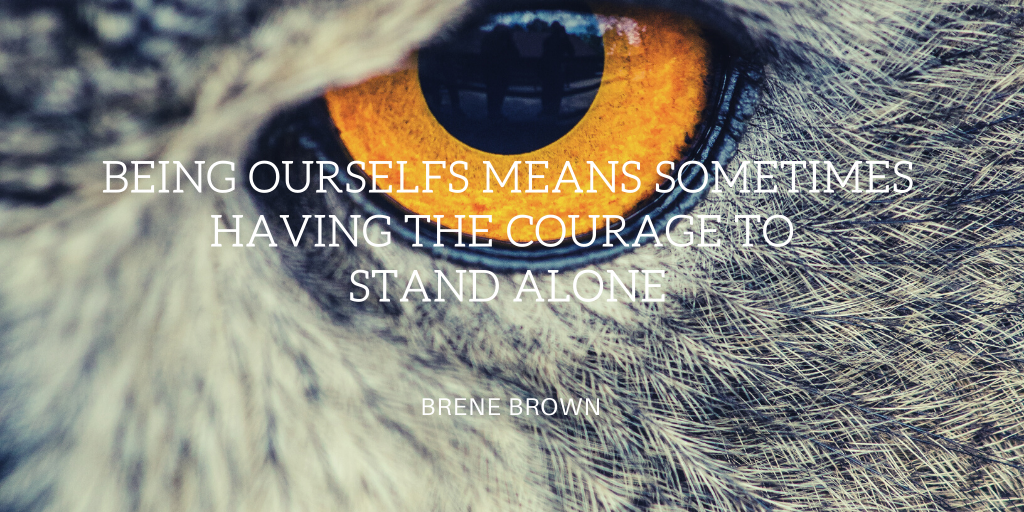In a recent a discussion with a friend, I articulated that I feel most people in my life do not allow me to be vulnerable. When I tuck into an uncomfortable personal experience, I am often met with resistance and judgment. It looks like judgment of my choices, the advice that I should get therapy, or criticism of where I am in processing the experience. What I feel most is that they are not allowing me to be present in the challenging experience. Watching me flounder and being uncomfortable as I work through my challenges makes some folks so deeply uncomfortable that they need to blame me for it.
I understand that most of us experience the world by projecting our own experiences onto other people. If you don’t, brilliant. But I have witnessed myself doing this many times in my life, and before I was conscious of it, I did it all the time.
The conversation led to our observations of how we know when we are allowing others to be vulnerable. Our conclusion was that when we are in a calm head space, we are able be curious and ask questions about how they feel instead of laying on the advice. We can give advice when they accept our offer of it, or when they ask us for our thoughts. I have been working hard on in my own life to not be so quick to offer advice. I aspire to have clarity when asking questions and to lead with curiosity.
The next part of our conversation flowed into a two part question of 1) when are we allowing someone the room to be vulnerable and explore themselves (while we are able to listen and be supportive), and 2) when are we allowing someone to behave in a way that is indulging in poor behavior or thoughts (and we then become their accomplice in negative behavior)?
This question feels like a Pandora’s Box because this is not an exact science and we can easily misstep in the process.
What I know is that vulnerability needs to be built with trust and over time. For any of us to feel safe in being vulnerable, we must have had the experience of being supported when sharing personal experiences. Over time, most of us are able to understand whether or not someone is trustworthy. One way we experience mistrust is when someone is judgmental towards us and our experiences: judgment erodes trust.
An answer to part one of the question would be that in order to allow others to be able to feel vulnerable with us, we have to have the discipline to show up ‘big’ for ourselves. Being big means we choose not reach out to someone when we know they are not good for us. It also means that before we are able to allow someone else to be vulnerable we have to be patient, loving and kind with ourselves. Being kind and loving takes work. We can’t force ourselves to be loving and kind; it takes practice and effort. We need to make a contract with ourselves to be soft instead of forcing ourselves to perform.
Part two of the question, and where the practice gets tricky, is that it is important to allow people to process and move through the big things in their lives. We have to learn to hold space for others to be themselves and have their own experiences. We need to support them by being curious rather than imposing our judgement.
However, when we have witnessed someone go through the same story (or a similar story) over and over again, when is it time to step in and offer our insights or call them out on a pattern that is not supporting their growth? There is no exact science to this. One solution is to ask if they want to hear what we have to say. Being kind with our words is the important part. We can offer that we have witnessed this happen multiple times, but without being judgmental or critical. Here is the trick: if it doesn’t land for them and they leave feeling unsupported, the only recourse is to apologize and ask how you could do better next time. Maybe it is that the topic is ‘off-limits’ for advice, and all they really need is someone who can listen. If it becomes tiring to hear it repeated, you could simply make an agreement to not speak about that specific topic.
Regardless, it is important to support our friends and family. As precarious that line can be, it takes trial and error. When we have a misstep we must learn to own it and offer our sincerest apologies.
May we all learn to be brave enough to allow ourselves and others to be vulnerable and have honest heartfelt conversations with ourselves and others.
With love
Noelle

